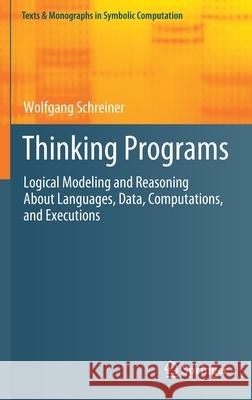Thinking Programs: Logical Modeling and Reasoning about Languages, Data, Computations, and Executions » książka
topmenu
Thinking Programs: Logical Modeling and Reasoning about Languages, Data, Computations, and Executions
ISBN-13: 9783030805067 / Angielski / Twarda / 2021 / 604 str.
Thinking Programs: Logical Modeling and Reasoning about Languages, Data, Computations, and Executions
ISBN-13: 9783030805067 / Angielski / Twarda / 2021 / 604 str.
cena 385,52 zł
(netto: 367,16 VAT: 5%)
Najniższa cena z 30 dni: 382,84 zł
(netto: 367,16 VAT: 5%)
Najniższa cena z 30 dni: 382,84 zł
Termin realizacji zamówienia:
ok. 20 dni roboczych.
ok. 20 dni roboczych.
Darmowa dostawa!
Kategorie:
Kategorie BISAC:
Wydawca:
Springer
Seria wydawnicza:
Język:
Angielski
ISBN-13:
9783030805067
Rok wydania:
2021
Wydanie:
2021
Numer serii:
000023700
Ilość stron:
604
Waga:
1.10 kg
Wymiary:
23.39 x 15.6 x 3.66
Oprawa:
Twarda
Wolumenów:
01
Dodatkowe informacje:
Wydanie ilustrowane











